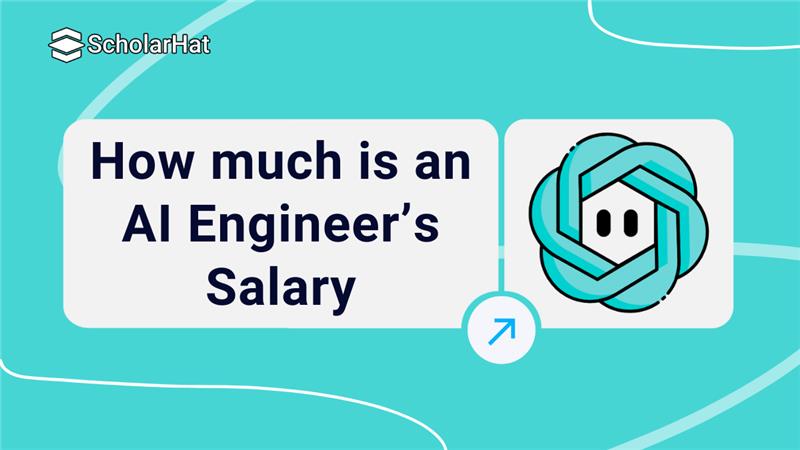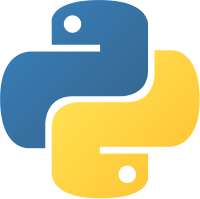13
FebAI Engineer Salary in 2025: Trends, Factors, and How to Maximize Earnings
An AI Engineer's salary in India basically ranges from ₹5 LPA to ₹30 LPA, with variations based on experience, job location, and the type of company. In India, entry-level positions with 0 to 1 year of experience usually start at around ₹4 LPA, while experienced professionals with 5 to 8 years of experience can earn up to ₹30 LPA or more.
In this AI tutorial, you will explore an in-depth explanation of the AI Engineer's salary in India based on different experience levels, job locations, and top industries hiring AI talent. You can also enroll in Scholarhat's Free Azure AI-900 Certification Course to start your learning.
| AI Engineer Experience Level | Salary Range (Per Annum) |
| 0–1 years (Fresher) | ₹4 LPA – ₹10 LPA |
| 1–3 years (Junior) | ₹8 LPA – ₹15 LPA |
| 3–5 years (Mid-Level) | ₹12 LPA – ₹25 LPA |
| 5–8 years (Senior) | ₹20 LPA – ₹40 LPA |
| 8+ years (Expert/Lead) | ₹35 LPA – ₹60+ LPA |
What is an AI Engineer?
An AI Engineer designs and develops artificial intelligence systems and models using advanced algorithms and data science techniques. They leverage a variety of tools and frameworks, including TensorFlow and PyTorch, to create intelligent solutions such as recommendation systems, predictive analytics, and computer vision applications. Their main goal is to turn data into actionable insights and automate complex processes, ensuring these solutions are accurate, scalable, and efficient.
What Does an AI Engineer Do?
As an AI Engineer, you’ll develop advanced artificial intelligence systems and intelligent features that help organizations automate processes, gain insights from data, and improve user experiences.
Here’s a quick look at your responsibilities:
- Designing and Building AI Solutions: Using frameworks like TensorFlow and PyTorch to create recommendation engines, predictive models, or computer vision applications.
- Creating Machine Learning Models: Training models to learn from data and make decisions, similar to teaching a system to recognize patterns and predict outcomes.
- Integrating AI into Products: Adding intelligent features to apps, websites, or business tools, making them smarter and more efficient.
- Keeping Systems Secure and Private: Ensuring all AI solutions and data are protected and comply with privacy regulations.
- Monitoring and Improving Performance: Tracking system accuracy and efficiency, and making improvements as needed.
If you enjoy solving complex problems and working with cutting-edge technology, this role could be an excellent fit for you.
AI Engineer Salary Structure
Now, let’s dive into the part you’re likely most interested in: how much does an AI Engineer earn?
Here’s a simple breakdown of what you can expect at different experience levels, in various locations, and with different qualifications.
By Experience Level
| Experience Level | United States (USD) | India (INR LPA) |
| Entry-level | $70,000–$110,000 | ₹6–12 LPA |
| Mid-level | $110,000–$160,000 | ₹12–25 LPA |
| Senior level | $150,000–$200,000+ | ₹25–40+ LPA |
| Lead/Principal | $200,000–$375,000+ | ₹40–60+ LPA |
AI Engineer Salary by Experience Level (India)
By Location (India)
| Location | Average Salary (INR LPA) |
| Bangalore | ₹10–30+ |
| Hyderabad | ₹9–28 |
| Pune | ₹8–25 |
| Mumbai | ₹9–27 |
| Chennai | ₹6–20 |
| Delhi NCR | ₹8–26 |
| Kolkata | ₹6–18 |
| Remote | ₹8–25 |
AI Engineer Salary by Location (India)
By Certification
| Certification | Salary Boost |
| Google Cloud Professional ML Engineer | High |
| AWS Certified Machine Learning – Specialty | High |
| Microsoft Certified: Azure AI Engineer Associate | High |
| TensorFlow Developer Certificate | Moderate |
| General AI/ML Certifications | Moderate |
| Data Science Certifications | Low–Moderate |
AI Engineer Salary Boost by Certification
By Job Role
| Job Role | Description |
| Entry-level AI Engineer | Starts with basic AI tasks and model training |
| Mid-level AI Engineer | Handles more complex projects and leads small teams |
| Senior AI Engineer | Leads big projects, mentors others, and drives innovation |
| AI Solutions Architect | Designs and oversees full AI solutions and integrations |
| AI DevOps Engineer | Automates deployment and scaling of AI applications |
| AI Consultant | Advises clients on AI strategy and implementation |
By Employer Type
| Employer Type | Key Features |
| Big companies | High pay, good benefits |
| Cloud providers | Competitive pay, stock options |
| Startups | Equity, fast-paced work |
| Consulting firms | Travel, project variety |
| Tech companies | Innovation, high pay |
| Small companies/freelancers | Flexible, variable income |
By Education
| Education Level | Salary Impact |
| Diploma | Standard pay |
| Bachelor’s | Higher pay |
| Master’s | Even higher |
| Ph.D. | Highest pay |
| Advanced certifications | Big boost |
| Non-technical | Lower pay |
Skills Needed to Become an AI Engineer
To become an AI Engineer, focus on these key skills to succeed and stand out:
- Programming Languages: Python is the most important, but knowledge of R and Java can also be valuable. Python is essential for AI development; R is great for data analysis, and Java is used in large-scale systems.
- Master AI Development: Machine Learning and Deep Learning help you build and train advanced AI models using frameworks like TensorFlow and PyTorch. You also learn techniques like supervised, unsupervised, and reinforcement learning.
- Data Management and Processing: Work with large datasets using tools like Pandas, NumPy, and SQL. Cleaning, organizing, and preprocessing data is key for effective model training.
- Explore Real-World AI Solutions: Natural Language Processing (NLP) and Computer Vision help you build applications that understand text and images using models like GPT, BERT, and CNNs/RNNs.
- Cloud Platforms: Use AWS, Azure, or Google Cloud to deploy and scale AI solutions efficiently.
- DevOps and Model Deployment: Learn automation, CI/CD, and tools like Docker and Kubernetes to deploy and monitor AI models in production.
- Version Control and Collaboration: Use Git and GitHub to manage code and collaborate with teams.
- AI Ethics and Security: Ensure your solutions are fair, unbiased, and comply with regulations. Understand privacy and security best practices.
- Problem-Solving and Analytical Thinking: Break down complex problems and use data to find innovative solutions.
If you enjoy learning new tech and working with data and code, you’re already on the right track.
| Read More: AWS vs Azure vs Google Cloud |
Career Paths for AI Engineers
| Career Path | Description |
| AI Engineer | Design, build, and deploy AI models and systems for real-world applications. |
| Machine Learning Engineer | Focus on developing and optimizing machine learning algorithms and models. |
| Data Engineer (AI) | Prepare and manage data pipelines for AI and machine learning projects. |
| NLP Engineer | Specialize in language processing for chatbots, translation, and text analysis. |
| Computer Vision Engineer | Develop AI systems for image and video recognition, object detection, and more. |
| AI Solutions Architect | Design end-to-end AI solutions and oversee their integration into business processes. |
| AI DevOps Engineer | Automate the deployment and monitoring of AI applications in production. |
| AI Consultant | Advise organizations on AI strategy, implementation, and best practices. |
| AI Research Scientist | Conduct cutting-edge research to advance AI technology and develop new algorithms. |
| AI Product Manager | Lead the development and deployment of AI products, coordinating cross-functional teams. |
As you gain experience, you can move into senior roles or specialize further, opening up more opportunities and higher pay.
What Affects AI Engineer Salary in 2025?
Several factors influence how much you can earn as an AI Engineer. Here’s what matters most:
- Industry demand: Healthcare, finance, manufacturing, and tech are investing heavily in AI, creating more jobs and higher salaries.
- Economy: AI jobs remain well-paid, even during uncertain economic times, due to strong demand and the strategic value of AI solutions.
- Security and compliance: Expertise in protecting data and ensuring AI systems are ethical and compliant is highly valued and can boost your pay.
- Automation and AI: Combining automation with AI skills makes you more valuable to employers.
- Location: Big tech hubs and cities with strong tech sectors pay more, but remote work is opening up new opportunities everywhere.
- Certifications: Earning certifications in AI, machine learning, and cloud platforms proves your skills and can lead to higher salaries.
How to Get a Higher Salary as an AI Engineer
Want to increase your earning potential as an AI Engineer? Try these proven strategies:
- Learn new technology and get certified: Stay current with the latest AI tools, frameworks, and cloud platforms, and earn certifications to validate your expertise.
- Upskill in DevOps and MLOps: These skills are in high demand and can set you apart from the competition.
- Build your network: Connect with others in the AI community. Networking can lead to better job offers and higher pay.
The more you learn and the more people you know in the industry, the better your chances of landing a top-paying job.
Challenges for AI Engineers
Every job has its challenges, and being an AI Engineer is no exception. Here are some common hurdles:
- Handling complex AI systems: Managing large-scale AI models and deployments can be tricky, but it’s also rewarding.
- Keeping up with new technology: The field moves fast, so continuous learning is a must.
- Ensuring AI is fair and private: Protecting data, reducing bias, and ensuring compliance are crucial and challenging.
- Managing costs: Efficiently using computational resources helps keep projects on budget.
- Working well with teams: Collaboration is key, especially when building and deploying AI solutions.
These challenges make the work exciting and help you grow as a professional.
Future for AI Engineers
Looking ahead, the future for AI Engineers is bright and full of opportunity:
- More jobs in AI and automation: As companies adopt AI, the need for skilled engineers will keep growing.
- Higher salaries for skilled engineers: With demand rising, pay is expected to increase for those with the right skills.
- New technology like generative AI and edge computing: Innovations are creating new roles and exciting projects.
- A need to keep learning new skills: Staying up-to-date with the latest tech will help you stay ahead in your career.
If you’re ready to learn and adapt, the future is full of possibilities for AI Engineers.
Summary
In conclusion, the AI Engineer salary is expected to continue rising as companies across industries rapidly adopt AI technologies and intelligent automation solutions. Professionals who build strong skills in machine learning, deep learning, cloud AI services, and natural language processing will see better pay and greater career opportunities.
To gain a deeper understanding of AI fundamentals and advance your career, consider enrolling in Azure AI Engineer Training and Azure AI Foundry Certification.
FAQs
Take our Artificialintelligence skill challenge to evaluate yourself!

In less than 5 minutes, with our skill challenge, you can identify your knowledge gaps and strengths in a given skill.







